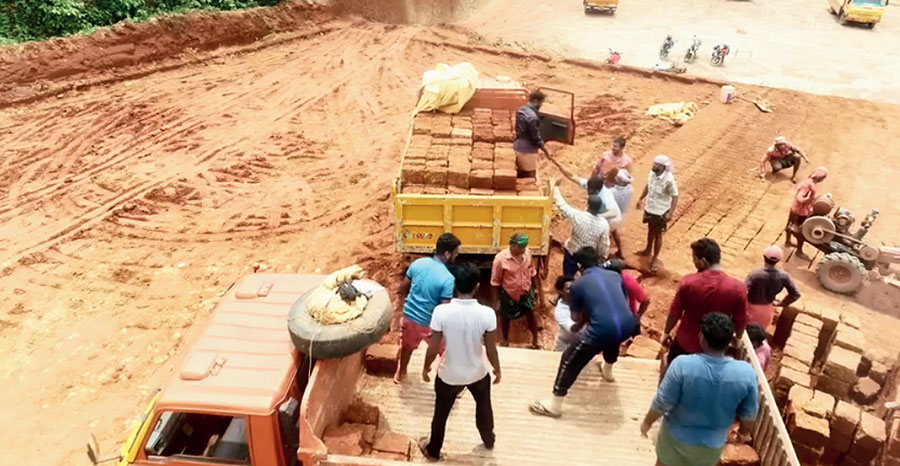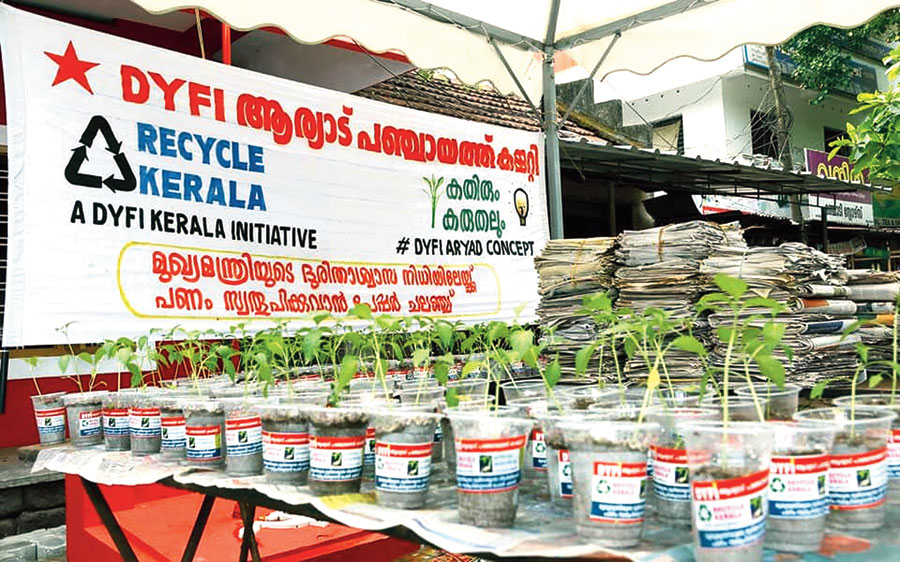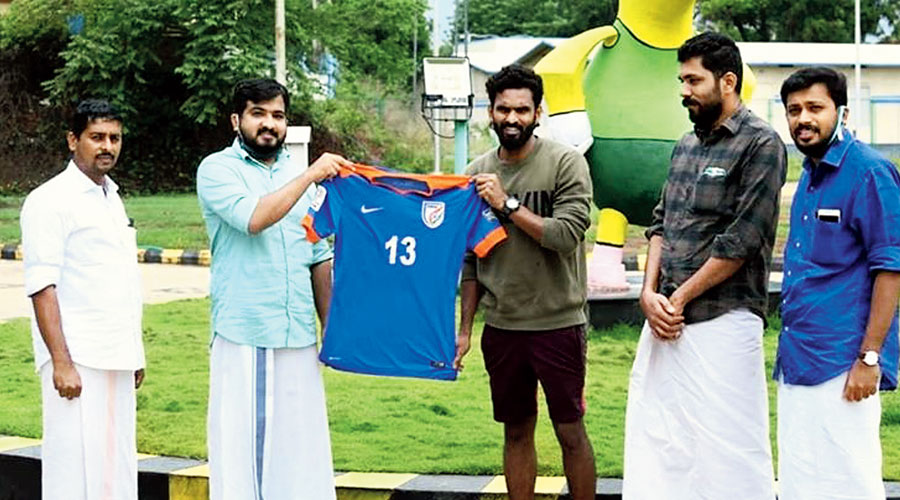Footballers in Kerala have donated their national jerseys as part of a campaign by CPM youth wing DYFI that initially started by collecting and selling recyclable waste to pool in money for the chief minister’s disaster relief fund amid the pandemic but soon enlarged in scope because of widespread participation.
The amount raised by auctioning the jerseys, which were sold to the highest bidders, is part of a total amount of Rs 10.95 crore that the three-month campaign has raised. Some 3,281 tonnes of recyclable waste from across Kerala were collected and sold during the drive that began in May.
Anas Edathodika, who played for the Calcutta-based ISL team ATK in the last season, former ATK member Mohammed Rafi, East Bengal midfielder C.K. Vineeth and Kerala Blasters young star Sahal Abdul Samad donated one Indian jersey each to the DYFI, which auctioned them through social media to raise funds for the Recycle Kerala initiative.
“We thank the footballers who donated their Indian jerseys that helped shore up some good money for the chief minister’s disaster relief fund,” Kerala DYFI secretary A.A. Rahim told The Telegraph on Thursday.

DYFI members load laterite stones in Kottayam to raise funds for the Recycle Kerala campaign
While Rafi’s India jersey fetched Rs 2.44 lakh, Sahal’s was bought for Rs 2.25 lakh and Edathodika’s for Rs 1.55 lakh. Vineeth’s national jersey could not be auctioned as the concerned DYFI unit’s Facebook page had crashed.
Cricketer S. Sreesanth bought a painting for an undisclosed amount and donated the money to the DYFI’s cause.
Rahim said people from across Kerala donated old newspapers, magazines, notebooks, unusable utensils made of aluminum, stainless steel and copper, and plastics.
“There were people who donated old motorbikes and cycles, which we sold to scrap dealers,” the leader said.
Some even gave their entire crop of vegetables to the DYFI, which sold the farm output and raised funds.
“It was a different experience collecting recyclable waste. Never did we imagine that we could raise so much of waste materials even from waterways,” Rahim said.
An organisation that has for years been engaged in unclogging waterways and storm water drains collected 6.65 tonnes of plastic waste that would have led to choked drains and flooding during the monsoon. The plastic waste was sold to scrap dealers who transported them to commercial recycling plants in Tamil Nadu.
The CPM bastion of Kannur in north Kerala accounted for the maximum donation amount — Rs 1.65 crore — among the districts.
“A farmer in Munnar donated his entire crop of cabbage that weighed about three tonnes. A family in Kottayam donated wood from trees that had been cut down,” Rahim said.

A DYFI unit in a panchayat in Kerala exchanged saplings for old newspapers and magazines as part of the campaign.
DYFI workers, too, earned money for the cause by doing manual labour and farming and cleaning household premises.
“Many of our members tarred roads, worked in farmland and engaged in pre-monsoon clearing of the surroundings of houses in many places in Kerala to earn daily wages that were donated to the fund,” Rahim said.
Earlier this year, the DYFI had envisioned a “TV Challenge” campaign to carry forward the Kerala government’s plan to help students with no access to TV, gadgets and the Internet to attend online classes.
As part of the “TV Challenge”, the DYFI had urged people to donate their second TV set or old smart phones and tablets.
“We collected 11,602 brand new television sets, 163 tablets and 157 smart phones that were donated to needy children,” Rahim said.











